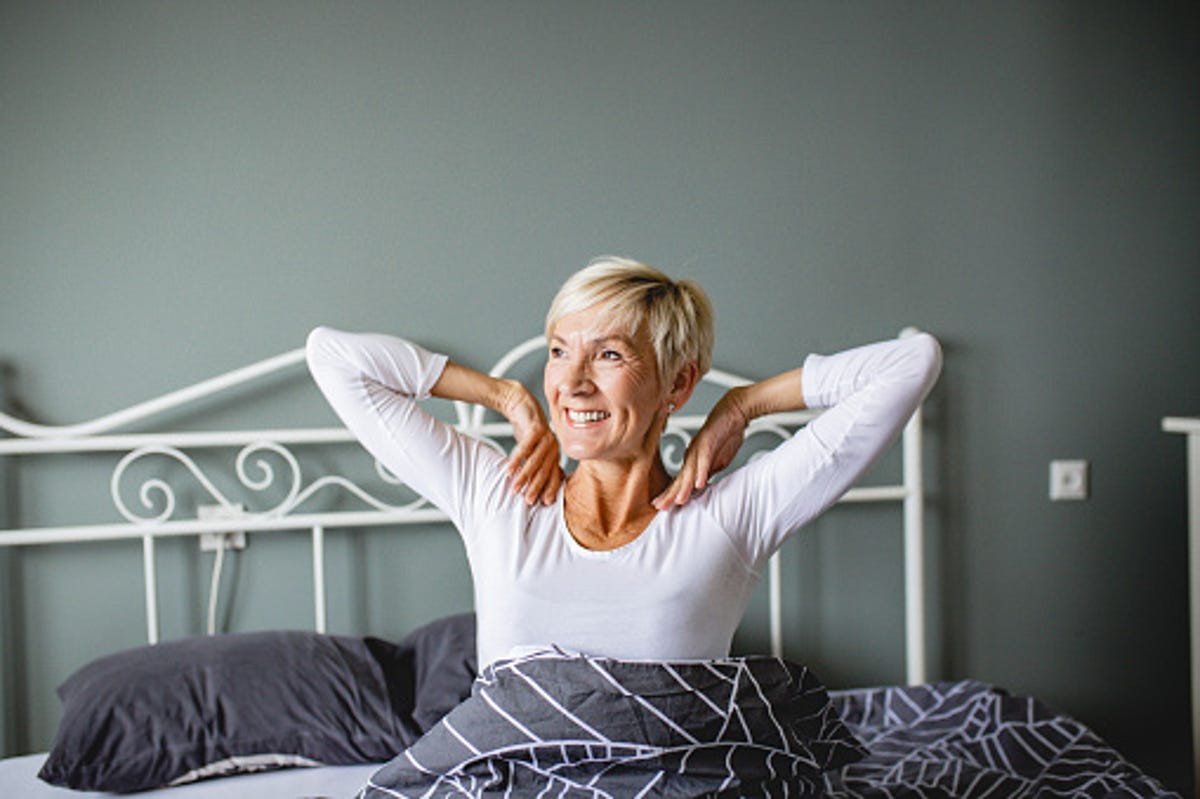If you’re a morning person, there’s good news for you: The early bird really does get the worm. Getting enough sleep is crucial to your health, and choosing the right time to go to sleep can be just as important. Research shows that early birds enjoy major health benefits, such as better mental health and increased productivity.
If you consider yourself to be a night owl, now might be a good time to change your sleeping habits. You can use this practical guide to learn what benefits you’ll get and gain a few practical tips to start your early bird journey.
Also, see which yoga poses are best for sleep and how to use tech and science to sleep better.
3 reasons to become an early bird
Better eating habits
Breakfast is often regarded as “the most important meal of the day,” but night owls often wake up after it’s served. Early birds don’t skip breakfast and therefore benefit from the healthy eating habits it offers.
Night owls tend to skip breakfast altogether or opt for later brunch, instead. Research shows that eating breakfast replenishes your body’s glucose supply, lowers diabetes risk and reduces brain fog.
Becoming an early bird is no easy feat. Having a sunrise alarm clock like the Philips SmartSleep Wake-up Light can make it easier. This sunrise alarm clock will help reset your circadian rhythm with light.
Details
Better physical health
Early birds also have the added benefit of having time for workouts in the morning, which protects them from last-minute plans and stressful days at work. There’s nothing wrong with working out at night; it’s just easy for things to get in the way. If you block out time in the morning, you’re more likely to be able to stick to a regular exercise routine.
One study found that night owls get less physical activity than people who wake up early. Regular exercises can elevate your mood and jumpstart your metabolism for the rest of the day.
Improved mental health
Better eating habits and physical health converge to improve mental health. It’s not entirely surprising that your stress levels are lower with regular exercise. Various studies have found that eveningness, or being a night owl, is associated with negative moods, anger, depression and fatigue.
No one’s saying that being a night owl means your mental health is lacking. It just means you may have to work a little harder to exercise or get some sunlight for your mental health.

Practical tips for becoming an early bird
There’s no magic pill that will turn you into an early bird. Our genetics predispose us to be either an early bird or a night owl. But that doesn’t mean it’s set in stone; there are things you can do to alter when you wake and sleep. Keep in mind that the shift won’t happen overnight; it’s a process you have to keep up with to achieve results.
Tips to start waking up early:
- Prioritize your sleep hygiene: Sleep hygiene is your sleep habits. What do you do to get ready for bed at night? Including relaxing practices into your nightly routine can help you fall asleep faster.
- Use lighting: One of the most impactful things you can do is control when and how you are exposed to light. Instead of using blackout curtains, let the light in and naturally wake up. Alternatively, you can also use a wake-up light or sunrise alarm clock.
- Move your bedtime by 15-20 minutes: Changing your bedtime isn’t easy. It’s unrealistic to try and change your sleep time by hours at once. It’s easier to shift the time you usually get in bed by around 20 minutes a night. Slowly work your way up to your ideal time.
- Don’t bring your phone to bed: We’ve all done it: When we can’t fall asleep, we scroll through social media while we wait to get tired. However, the blue light from our phones can suppress the already late melatonin production for a night owl. You’re better off leaving your phone on your nightstand or across the room.
Too long; didn’t read?
Being a night owl doesn’t mean you’re unhealthy. It’s possible to be healthy and live by the moon. However, it’s more difficult to eat breakfast, exercise and keep up with your mental health with the night owl sleep cycle. If you want to alter your sleeping schedule by a few hours, prioritize your sleep hygiene and slowly move your sleep-wake time. It’s a marathon, not a sprint.
For more on sleep, learn how to deal with sleep separation anxiety, why insomnia happens as we age and which foods nutritionists say are the best for sleep.





















+ There are no comments
Add yours